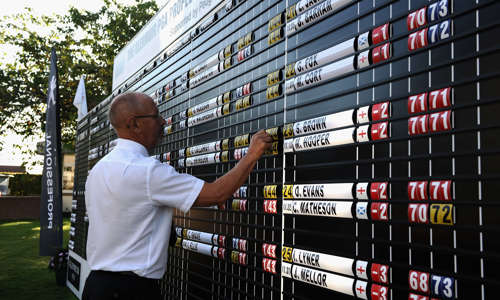Eco-specialist urges golf clubs to follow 10-point plan to a greener future

06/10/2021
Working with the golf and leisure sector to help venues realise their sustainable goals, GreenClub has already made a huge impression in changing attitudes and approaches to the environment since launching last autumn.
London Golf Club, host of the Cazoo Classic on the European Tour this summer, and Roganstown Hotel & Country Club in Ireland are just two of the venues to have benefitted from working with the specialist environmental consultants to further their combined aim of carbon neutrality.
But GreenClub believes that the golf and leisure sector can do much more to help protect and promote the environment and, as the global golf industry gears up for COP26 in Glasgow next month – the 26th edition of the United Nations Climate Change Conference – the company has unveiled a 10-point plan that it is urging golf clubs and venues to adopt so that they can start their journey towards ultimately becoming ‘net zero.’
GreenClub’s eco-checklist covers all parts of everyday life and features a number of simple measures that not only promote a greener future but can also benefit venues financially.
- Switch off the lights and switch your bulbs to LED.
- Switch off “standby” appliances. When replacing old appliances, look for more energy efficient ones.
- Check that the fridge and freezer thermostats are at their most efficient setting and defrost regularly to maintain efficiency.
- Turn down the heating – even just one degree will make a difference.
- Be smart on water usage. Fit regulators on taps, showers and toilets so water can’t be left running.
- Check your building insulation and reduce draughts by closing doors and curtains.
- Use a smart meter to monitor energy usage.
- Encourage and incentivise your customers to car share ….. or cycle to your venue.
- Source the produce you require for your venue locally.
- Cut down on single-use plastics and use wooden or recycled golf tees.
GreenClub chief executive, Liam Greasley, said: “This is a very real issue – it’s not a box ticking exercise – and the golf and leisure industry needs to start taking note of these issues.
“The list that we have compiled and are asking people to follow shouldn’t be seen as a replacement for engaging in a longer-term strategy to make a difference. This is very much the start of the path towards carbon neutrality, and we would urge any venue that is serious about making a long-term commitment to the environment to speak to us.”
GreenClub – a principal partner of the PGA – is committed to improving sustainability in the golf industry and beyond and their objective continues to gather pace on several fronts. As well as their consultation services to assess current and future needs of any business as they seek to reduce their carbon emissions, venues can also become generators of their own green renewable energy by utilising renewable energy options. In some cases, any surplus energy can then be sold to the local market, rather than back to the grid.
CLICK HERE to find out more about GreenClub.
- Categories:
- Commercial



































